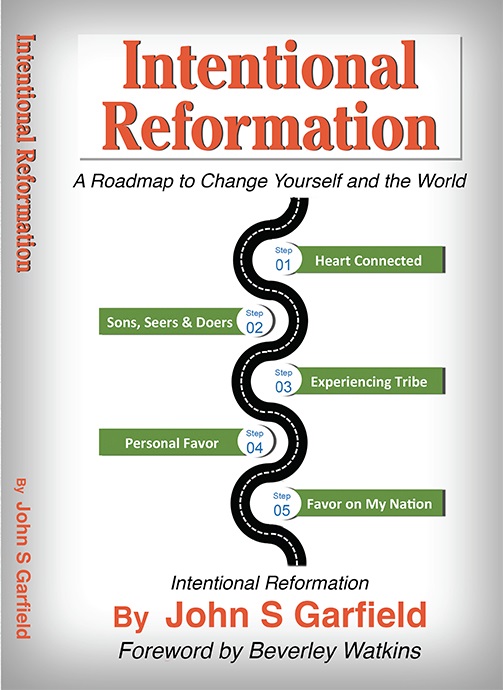Itettps://youtu.be/https://youtu.be/3sW00hS8S-43sW00hS8S-4
I
When I Felt the Jailbreak From Serf to Son
Sonship is a new concept for most of us. It’s natural to ask, “What difference does it make?”
For years, I lived under the religious mantra that new disciples should surrender and submit to serve another man’s vision. This was considered the definition of humility: laying your life down and putting others first. It effectively promoted an intellectual value system grounded in the belief that servants don’t hear from God themselves; they need a master or minister to tell them what to do. This mindset was thought to create loyal, efficient staff in business and a faithful, devoted congregation in church.
Sonship is a conversational relationship in the Council where we are treated as family and shown our Father’s business. For me, this was a total jailbreak into the Kingdom… Conversations!
Jn 15:15 – I no longer call you servants,
because a servant does not know his master’s business.
Instead, I have called you friends,
for everything that I learned from my Father
I have made known to you.
Here are seven practical ramifications of sonship:
#1. Sons Know Why – Sons work with purpose and passion because they understand their Father’s “Why.” They’ve had the conversations, heard the Living Words, and grasped His heart. Questions and contributions feel welcome.
#2. Co-laboring – Sons consciously co-labor with their Father, seeing what He’s doing and wanting to participate (Jn 5:19). Clarity in Heaven shows up on earth as courageous initiative.
#3. Humility – Their definition of humility involves surrendering to a much bigger purpose, such as inheriting nations. Sons are open to allowing God to help them, even to the extent of making their name great while bringing Him glory (Gen 12:2-3).
#4. Creativity – Obedience does not describe the voluntary heart of sons aligned with Father (Righteousness). Their initiatives are rooted in Living Words, love, enthusiasm, and ingenuity, rather than compulsion, accountability, or discipline.
#5. Prophetic Agility – Sons see Father’s love in mid-course corrections. They view His will and purpose as dynamic and welcome conversations to help them keep in step (Gal 5:25).
#6. Suffering Setbacks – Sons understand Father’s purpose and endure setbacks, suffering, and obscurity because His mercy and manna are new every day. Co-laboring with the Father is its own reward, and they are not driven by ambition or results, even though they have more ambition and better results than their brother servants.
#7. Ecclesia – Lastly, sons treat others as the Father treats them. As leaders, they seek the purpose the Father has written in the hearts of these they lead and encourage initiatives that reflect what God is doing today. They consider resumes not just for experience and talent, but also for the question: What can God do through you? Sons cultivate a culture of Ecclesia, where people gather around shared Kingdom Purpose.
I
The All-About-ME Syndrome – Pleasure, Soulish Happiness, and Sonship
We’re all prone to confuse pleasure, happiness, and sonship, but they are fundamentally different. Pleasure is short-lived; happiness lasts longer; sonship is eternal happiness.
- Pleasure is visceral; soulish happiness is ethereal and emotional; sonship is spiritual and effectual.
- Pleasure is about taking; happiness is about giving; sonship is about being a conduit for what Father gives.
- Pleasure can be attained through substances; happiness comes from receiving our heart’s desires; sons are thrilled when they see Father’s dream come true.
- Pleasure is often experienced in solitude; happiness is best experienced in social groups; sonship is a tribe built around Father’s Council in Heaven and His purpose on Earth (an Ecclesia in business).
The extremes of pleasure can lead to addiction, whether through substances or behaviors. The introversion of soulish happiness can ensnare us in the idolatry of self-worship. Sons experience the joy of co-laboring when they align with Father, doing what He is doing and living out their spiritual calling. Pleasure and happiness are byproducts of co-laboring with Father’s purpose via Sonship, Ascension, and Reformation.
More importantly, pleasure is linked to dopamine, while happiness is associated with serotonin. Since dopamine downregulates serotonin, the more pleasure you seek, the unhappier you may become. Sons make Father smile.
Las Vegas, Madison Avenue, Wall Street, Silicon Valley, and Washington, DC, have systematically conflated happiness with pleasure, creating a marketing model to “buy” happiness.
The Kingdom paradigm is different: “Blessed” are those who put the Father’s Kingdom first, ahead of their personal pleasure and happiness. They can endure the cross for the joy set before them and receive a hundredfold in this life and the life to come. Sonship works! Happiness and pleasure are a “tip” for sons and daughters who bring Father’s Kingdom from Heaven to Earth.
He is no fool who gives what he cannot keep
to gain what he cannot lose. (Jim Elliot)
I
Confirmation Bias and Business Decisions
Businesspeople are generally self-starters, self-motivated, self-made, self-confident, self-disciplined, self-sufficient, and have good self-worth. These are the people who can have a prophetically correct purpose, get off on the right foot, and then crash because they tried to accomplish that purpose in their own strength. The right thing done the wrong way or in the wrong season is still presumption.
The challenge is accessing Heaven because “Everything I need is not inside myself!” Going to the Council for nine conversations several times a week competes with our schedules, intellect, and personal ambitions.
Prophetic Purpose (Following the Lamb, Not My Plan)
The essence of Reformation on any level starts with a purpose larger than myself. That’s the definition of putting Father’s Kingdom first and making His righteousness a priority. Father and I are on the same page. He’s not my god-genie that exists to answer all the prayers needed for my self-purpose. We’re working on His agenda and deploying His power (now ours). His purpose isn’t static either. It’s not “hear it once and run with it.” There is a real need to have conversations in the Council.
Prophetic purpose isn’t necessarily logical, rational, intellectual, or personal. It comes from outside us, and so does the power to make it happen. That translates to humility and patience, which can be a bit rare in business. It’s also true that humility and patience are already present in successful Kingdom business leaders. You can feel their agility and listening skills are rooted in brokenness.
Prophetic purpose is probably the biggest battleground in shifting from a secular or Christian business to a Kingdom Business. You can’t get there without having conversations in the Council. Our intellectual independence from God gets traded for His wisdom and His power.
Ascension is mystical; I get it. But so was Jesus, and so are His sons that all creation has been waiting for (Rom 8:19). We’re not just looking at resumes for what you can do; it’s what can Father do through you that sets you apart as His son.
The inspiration for this blog came from a Council session that contains more information on this topic. It’s also a template for your own Council Sessions. 2025-07-19 Council – Confirmation Bias
I’ve used excerpts from Sonship, Ascension, and Reformation which will be available on Amazon in a few weeks.



